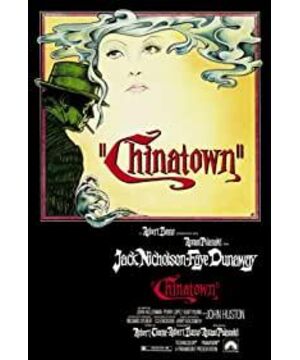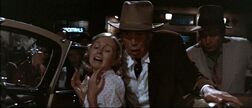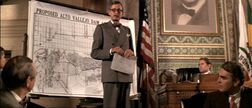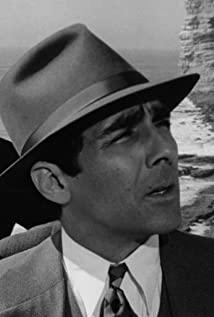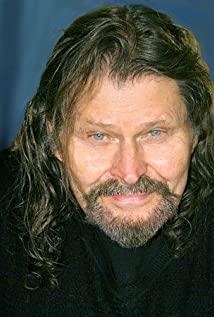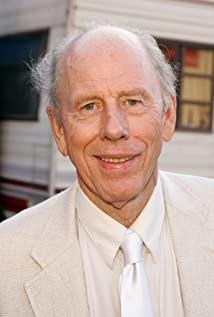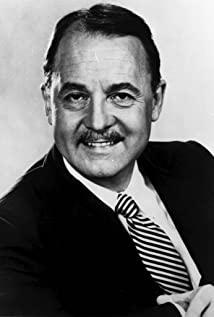From the late 1960s to the early 1970s, Hollywood experienced the so-called "New Hollywood" or "the Hollywood renaissance". During the period, the management methods, policies, personnel, and shooting modes of major film production companies have undergone many changes. For example, large companies like Paramount used to have their own theaters, but Supreme Court said in 1948 that this violated antitrust law. This has both advantages and disadvantages. The downside is that the production company doesn't have a hard-to-play screen to show their films, but the upside is that they don't have to keep a movie theater in an environment with low attendance. In the 1950s and 1960s, Paramount was used as an example. Many of its high-cost movies had a mediocre box office (such as the fallen of the roman empire in 1964). One of the big reasons is that the top executives of the production companies are old men from the golden age of Hollywood in the 1920s and 1930s. Their ideas are difficult to attract young people, and the young people who graduated from college were the largest long-term moviegoers at the time. . In 66, Paramount was acquired by Gulf and Western Industries, and Gulf and Western sent many young producers down. Famous ones such as Robert Evans, he produced movies such as Love Story, Godfather. These young producers and the film classification system released in the 1960s have made the content of some movies more adult, (in fact, they are more mature and directly reflect the naked reality, such as incest and corruption in Chinatown), because of such movies It is more suitable for young people, especially college graduates. It is also at this time that a group of young, I must say, great filmmakers, such as Francis Coppola, Martin Scorsese, Brian De Palma, and Europeans such as Michelangelo Antonioni, Roman Polanski made her mark in Hollywood. Like the audience at the time, these young directors were very anti-authoritative, suspicious, and rebellious. (Vietnam, racial issues, various assassinations, Watergate, etc.). For example, the leading actors and actresses of Chinatown have previously played films like Bonnie and Clyde and Easy rider. In fact, Chinatown's screenwriter Robert Towne also participated in writing the script for the male and female robbers. Chinatown was released two months before Nixon stepped down. A large number of similar dark and corrupt movies followed, such as Coppola's the conversation, and all the president's men.
Talk about the movie itself.
From 1930 to 50 years, Hollywood was very popular to shoot hard-boiled detective films, also known as hard-boiled detective films. Of course, this is also influenced by tough guy novelists such as Raymond Chandler and Dashiell Hammett. (Their book is very interesting). But Chinatown is different from detective novels in the traditional sense. In the end of traditional detective novels, the detectives are heroes, who resolve crimes and seek justice for the victims. Masculinity is praised. But in Chinatown, the protagonist Gittes is doing these things on the surface, but in fact he himself is the object of being played with. For example, when he told a pornographic joke, he didn't know that the hostess was behind, his nose was cut, or he was beaten by the fruit grower. He is no longer the traditionally shrewd detective who knows everything one step faster than others. Here he realized it with hindsight. Polanski put a detective from the detective novels of the 1930s and 1940s in a more real, cruel, and elusive world. Then let him be defeated.
The script of the movie has been revised three times. The first draft has a voice-over at the beginning and at the end (previously, Raymond Chandler’s films were shot in this way). In the end, Evelyn killed Cross and Gittes saved her daughter, but Cross's land still made a lot of money. Robert Towne said that the intention of this writing is that he feels that individuals who have committed crimes against individuals, such as murder, robbery and rape, will be put in jail, but those who commit crimes against a community will name the streets after them and call them. For in the city hall. After Polanski arrived, he wrote the second draft. The voice-over is gone, Evelyn is dead, Cross is crying with her body, Gittes tells Escobar Cross next to him is the master of all this. The ending of the third draft is even darker. Cross blindfolded her daughter/granddaughter and dragged her into the darkness without any punishment. (This is also in line with Polanski’s usual style. His previous Repulsion, The fearless vampire killers, rosemary baby, macbeth ended up being harmed by naive (ignorant) people. Critics say this is because he was under the rule of the Nazis when he was a child. Spent in the Cracow slum).
About the image of water.
The symbol of water runs through the film: in addition to the clips he himself filmed at the beach and in the reservoir, the drinking fountain on his left when he tells a pornographic joke, he replaced the steaming car in the background of the barbershop, the newspaper headline Seabiscuit Idol of Race Fans, The pool in the Mulwray garden, the various fish in the film, the dialogue like Echo Park, water again, the sound of the car washing when Gittes went to visit Mulwray, the dripping faucet in the apartment after Session's death... And the name Noah Cross, and him In the middle of the night (Noah and the flood), his yacht club albacore, the fish they ate for lunch, Cross said Mulwray loves ponds, "that's where life begins". The most critical turning point of the plot occurred when Gittes found the pair of glasses in the pond. The glasses represent another theme of the film: the limited vision and cognition of human beings. The opening photo, the back photo of Cross and Mulwray arguing, their glasses, the "flaw" in Evelyn's eyes, Gittes's rearview mirror, his binoculars, his camera lens, the first time he saw Evelyn and Katherine together At the window, the gardener kept saying bad for the glass. All this Gittes saw led him to wrong judgments. He thought Mulwray had an extramarital affair. He thought Evelyn had imprisoned Katherine. He thought it was her who killed him. To her husband, etc.
Regarding the puns in the film.
The first sentence of the opening "You can't eat the Venetian blinds." followed by "blinds", the detective and the so-called "private eye", and throughout the film The "water and power". These images and puns appear repeatedly, connecting the whole film.
Some questions (Garrett Stewart):
Why is it usually cut and served and Noah wants to eat the whole fish? Is this related to his name Noah? Why does Evelyn have "flaw" in his glasses? Why was she shot through the last glasses? Why did he only have one lens left after the fight with the fruit grower? Curly's wife's dark circles? Albacore was wrongly written as apple core, grass glass? Why is Gittes destined to "make the same mistake twice" as Mulwray said? Stewart said that this is a riddle without a single answer, an allegory without a set meaning. He further speculated that this is "oriental inscrutability", which also coincides with "Chinatown".
I sorted out the film reviews written by Syd Field, John Alonzo, Steve Neale, Garrett Stewart, and several others. Maybe the language switch is a bit awkward, just understand it.
View more about Chinatown reviews


